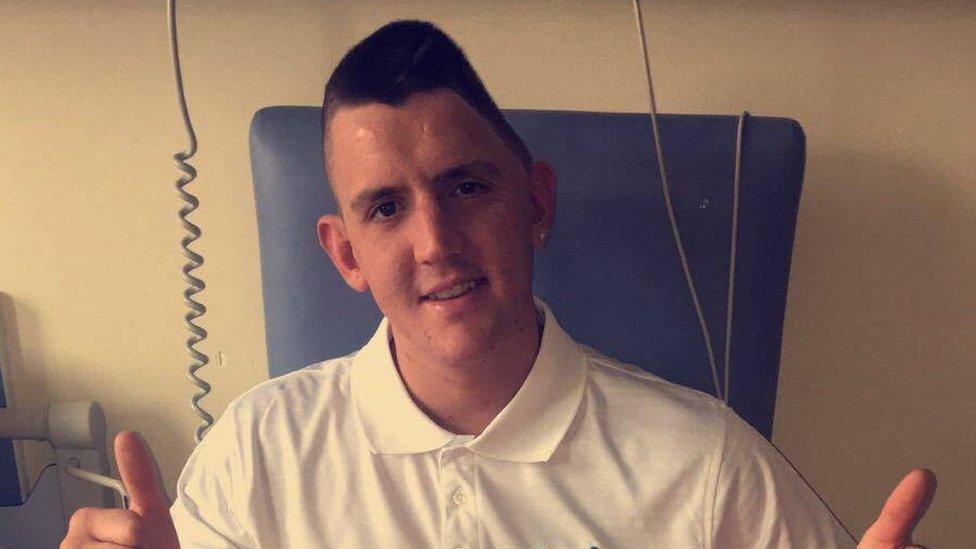Injured boxer Daniel Flaherty tells of the 'fight of his life'
- Published
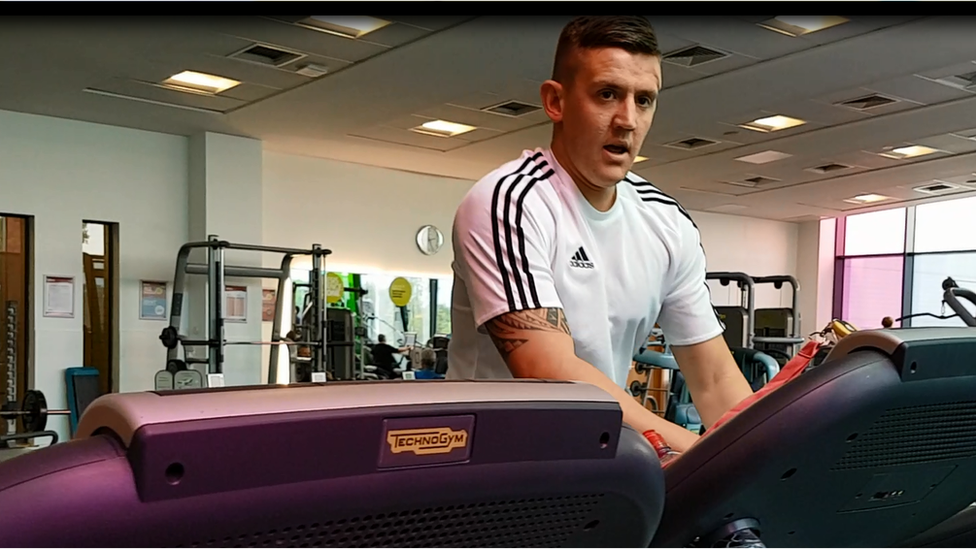
Daniel Flaherty is working on getting back to full fitness
Eighteen months ago amateur boxer Daniel Flaherty was embarking on the fight of his life - but it wasn't in the ring.
After collapsing in a changing room following a title fight in Motherwell, he was being treated in hospital for a serious brain injury.
Daniel would go on to have a series of life-saving operations, including one to have a large chunk of his skull removed, and another to replace it with a metal plate.
His recovery has been long and arduous but the 25-year-old and his family, who live in Stirling, are confident that he is now in the final stages.
He won't be returning to boxing, but he is back at work a couple of days a week, he's a regular at his local gym and he's looking forward to a holiday in Magaluf.
His determination has won him the admiration of friends and family.
"What he has done is incredible," says John Flaherty, Daniel's father.
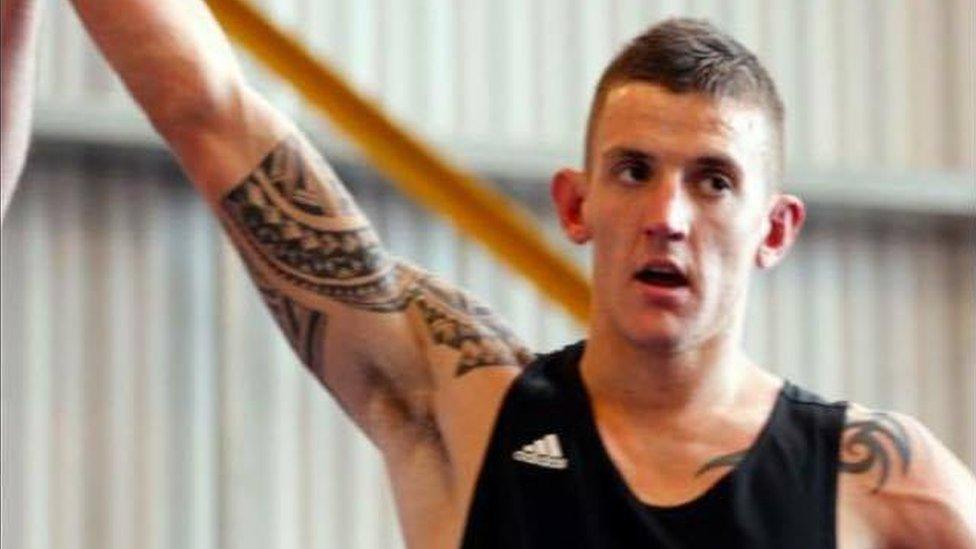
Daniel trained with Bannockburn Boxing Club
"He's pushed himself, it's came from him, it's came from inside him, the desire to get back to as much of a normal life as possible, and not just sit about," he added.
"He's optimistic and hopeful for the future. There's enormous pride from his mum and me and the rest of his family and friends."
Daniel's injury means he has no memory of the fight - which he lost on a computer-selected split decision - or of the bouts leading up to it.
"I can't mind any of it," he said. "I can't remember any of the fights. I woke up in hospital two weeks later. I've been recovering for the last year and a half.
"At the start I was just trying to recover, now I am trying to get my fitness back and lead a normal life."
Daniel first took up boxing several years ago, before drifting away from the sport.
When he got back into training in 2015, he was determined to "give it everything", he said.
"This was my first competition coming back. I stayed off the drink, I was training, eating properly, and getting the weight down and then that happened."
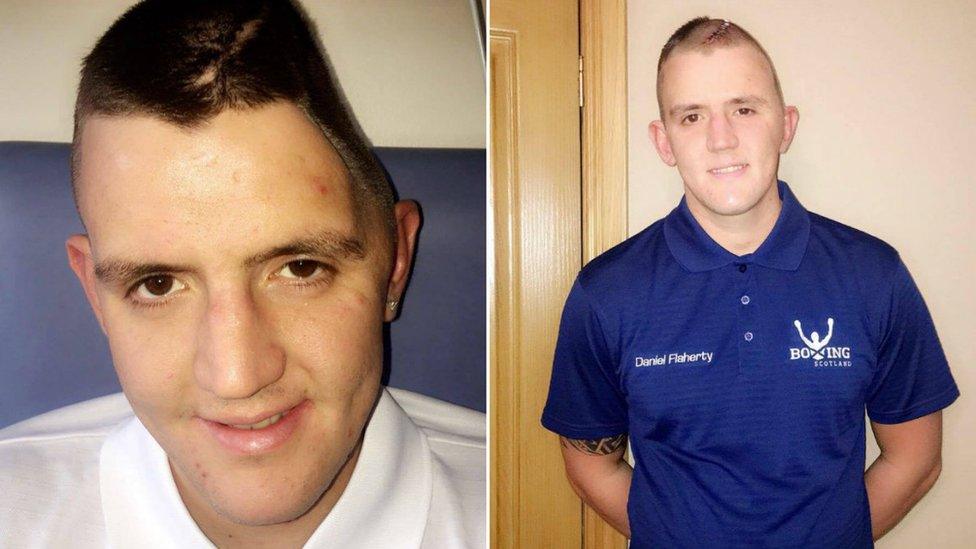
Daniel has had a metal plate fitted after getting part of his skull removed.
Medics discovered Daniel suffered a bleed to his brain when he collapsed following the Scottish Novice Champion fight in October 2015.
The severity of the situation dawned on John as plans were made to transfer his son to the Queen Elizabeth University Hospital in Glasgow.
"From that point on, it kicked in for me - this was a real life-or-death fight," he said.
"For want of a better word, I went into battle mode... I was determined that he was going to make it.
"We came through the first operation, we came through the second operation... we never flinched.
"It probably did make us braver people but it was a life or death situation. If we weren't doing it, nobody else was going to do it."
The recovery process has been a long, and at times, lonely experience, said John.
"It's hard for people sometimes to deal with him," he added. "For a while I turned into his best friend.
"I felt I had to go everywhere with him to keep an eye on him. I couldn't expect anyone else to watch him the way a father would watch his son. I had to be with him."
But the experience has brought the pair closer, with Daniel insisting: "He is my best friend anyway."
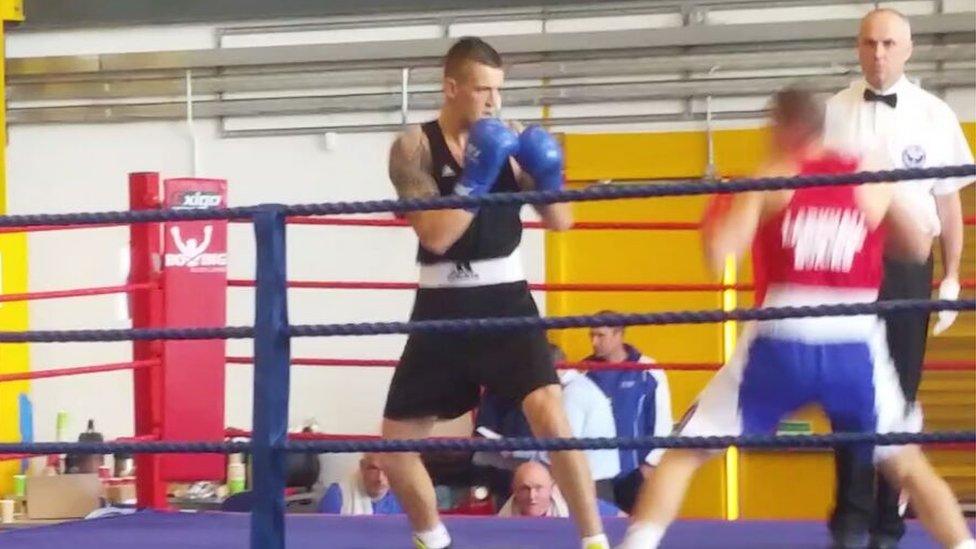
Daniel has no memory of the two weeks before he was injured
Daniel admits that at times he has been frustrated by the limitations placed on him by the recovery process.
He overcame initial problems with his sight and slurred speech, but he continues to be affected by tiredness and memory issues.
While his peers were building their careers and socialising with friends, for some time he was "stuck in the house" and only able to take short walks with his parents.
However, he is in no doubt that their support has been invaluable.
"They have been by my side through it all from day one," he said. "Them and my girlfriend, they have been strong for me. It's been a massive help."
Risks of boxing
He is philosophical about his injury and he bears no grudge towards the sport of boxing.
And he's keen that other young men thinking of stepping into the ring know the risks.
"If I knew that that kind of thing could happen, then I probably wouldn't have taken it up," he said.
"Everyone needs to know that there's a chance that bleeds to the brain do happen. They need to know the full risks of boxing before they take it up or step in the ring."
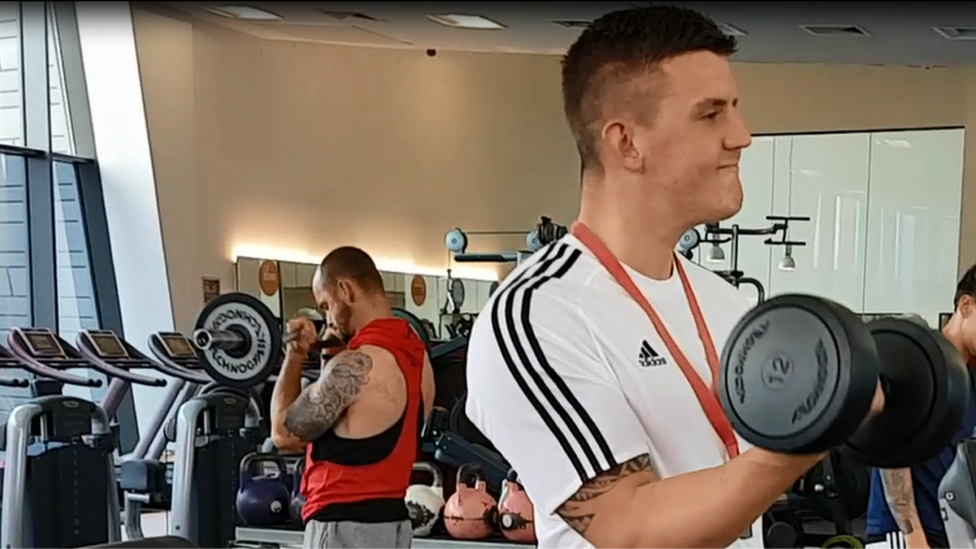
Daniel is a regular in his local gym, where he working to make a full recovery
His father agrees.
"I've not got any anger with boxing," John said. "I've got immense respect for people who go in the ring.
"If you really want to do boxing, I've not got a problem with that but I think people have got to be aware that what's happened to Daniel, what's happened to Mike Towell (who died after a bout in September 2016) and recently two or three other cases, it can happen."
Now his son has beaten a brain injury, John has great hopes for his future.
"My dream for him is to live as normal a life as possible and make his life as good as it can be," he said.
"I've said to him, Daniel, you've been knocking on death's door and you've come back from that... you've got to make your life as good as possible.
"Just be happy with whatever you've got, there's no room for negativity now."
And he added: "You can dwell on the past or you can look to the future. And that's they way we're looking at it - we've got a lot to be thankful for."
- Published4 October 2016
